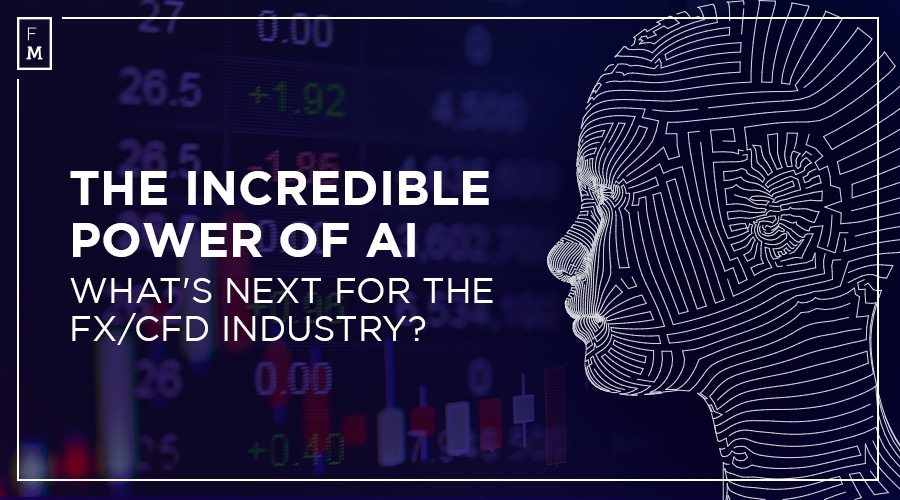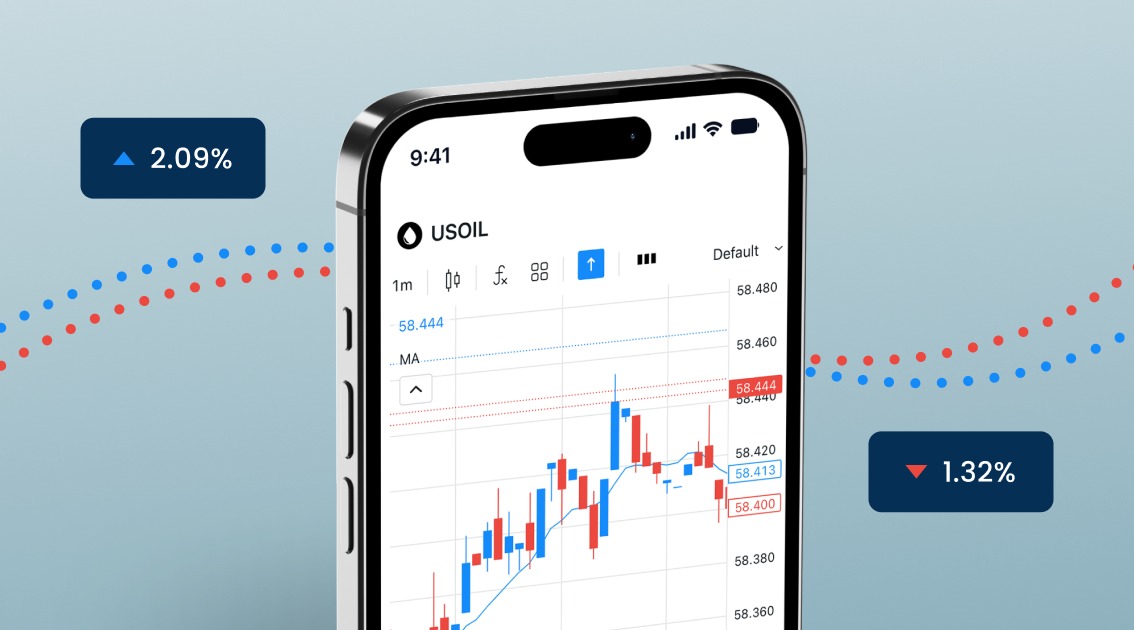Despite the war in Ukraine, high inflation and changing interest rates, the business world has been focused from the start of 2023 on something else… ChatGPT. A chatbot using artificial intelligence (AI) concepts. Since every branch of business is using either ChatGPT or other AI based tools, Finance Magnates decided to take a look at this phenomenon in QIR1 2023 to see if and how it can impact the retail FX/CFD trading industry.
The FX/CFD industry has long been characterized by high-risk investments and high volatility. However, in recent years artificial intelligence (AI) has emerged as a powerful tool for retail investors looking to trade in these markets. It can also help CFD industry participants, such as brokers or fintech firms.
One of the key benefits of AI in the financial industry is its ability to analyze large amounts of data quickly and accurately. This can help financial institutions detect and prevent fraud, assess, and manage risk, and make faster and more informed trading decisions.
AI can provide personalized investment recommendations based on an individual's risk profile and financial goals. By analyzing customer data, AI-powered algorithms can suggest investment opportunities that are tailored to each customer's unique needs and preferences.
However, it's important to note that AI is not a crystal ball that can predict the future prices of assets. As Oded Shefer, the Founder of CPattern, explains in QIR1 2023, there are endless inter-dependent factors that influence prices, including unpredictable events like the COVID pandemic. Nevertheless, AI can help traders make better-informed decisions by cleaning up the chatter and noise and reducing psychological biases.
However, there is also risk. Nader Nurmohamed, the COO at Hantec Markets Group, told Finance Magnates Quarterly Intelligence Report, QIR1 2023: “While AI offers forex traders many ways to make money, it is important to remember that it is still a technology that will need to be overseen so that traders can guarantee they are making intelligent trading decisions. Relying only on AI-driven tools is not recommended, as there is also the risk of data inaccuracy. If poor-quality research data is used, this can affect the AI analysis and predictions, ultimately impacting the outcome of a trade.”
AI can also help financial institutions ensure compliance with regulations. By analyzing large amounts of data, AI can identify potential violations and help firms stay on the right side of the law. This can include everything from reading broker trading statements to verifying compliance with marketing regulations.
Unlock the Full Insights in the Finance Magnates Quarterly Intelligence Report! Subscribe today to gain access to the complete analysis and extensive content of our exclusive Quarterly Intelligence Report (QIR). Stay informed about the latest developments, trends, and predictions in the FX/CFD industry and beyond. With your subscription, you'll receive in-depth articles, expert opinions, and comprehensive market analysis that can help you make smarter decisions.
AI Helping Not Only Retail Traders
Finally, AI can be used in customer service departments to provide 24/7 support to customers. AI-powered chatbots can answer questions and provide support, reduce waiting times, and improve the overall customer experience.
In general, AI has the potential to revolutionize the FX/CFD industry by streamlining operations, reducing costs, and providing better services to customers. But, the implications of AI usage are much bigger than the FX/CFD industry, or business at all. In some cases, it will have a social impact and will change the way we work and live. In many cases, if we all pay attention and use AI in a smart way, these changes will be beneficial. We can compare this situation to the era when the internet was in its first phase. Nobody really knew how exactly this would change our lives but today we can see, it is extremely difficult to live without the internet. In the case of AI changes to the way we live can be even bigger.
We can already see the democratization of AI. AI apps are becoming more accessible and affordable to everyone, regardless of their technical expertise or budget. Thanks to platforms such as SwayAI and Akkio, anyone can create, test, and deploy AI-powered solutions using simple drag-and-drop features or wizard-based interfaces. There are also many apps that provide AI functionality for various purposes, such as predictive text, data visualization, content creation, and personalization. These apps enable users to leverage the power of AI without having to code or understand the underlying algorithms.
Secondly, an augmented workforce is a fact. AI apps are not only replacing human workers but also enhancing their abilities and skills. Many workers are using AI tools and services to perform their tasks more efficiently, accurately, and creatively. For example, marketers use AI apps to generate leads, segment customers, and optimize campaigns. Engineers use AI apps to monitor machines, predict failures, and optimize performance. Lawyers use AI apps to search for relevant information, analyze contracts, and draft documents. In 2023, more workers will find that AI apps are part of their everyday working lives.
Summary
As AI becomes increasingly integrated into everyday working lives, its impact on society cannot be underestimated. Similar to the internet's transformative effects, AI has the potential to reshape how we live and work. The democratization of AI and the augmentation of the workforce are two notable developments. User-friendly platforms and apps enable people without technical expertise to harness AI's power, while workers across various fields leverage AI tools to enhance their efficiency and creativity. Check out the latest Finance Magnates Quarterly Intelligence Report for QIR1 2023 to see how AI influence will continue to grow in 2023, prompting us to adapt and embrace its potential for change.

















